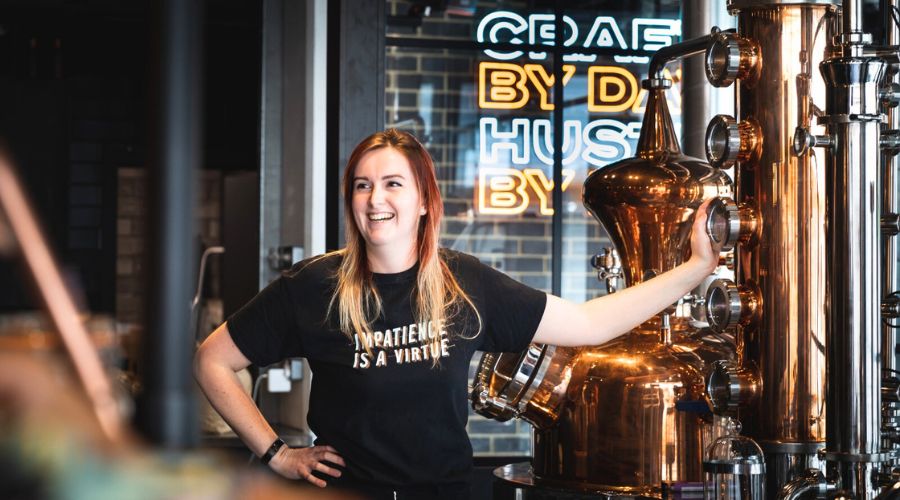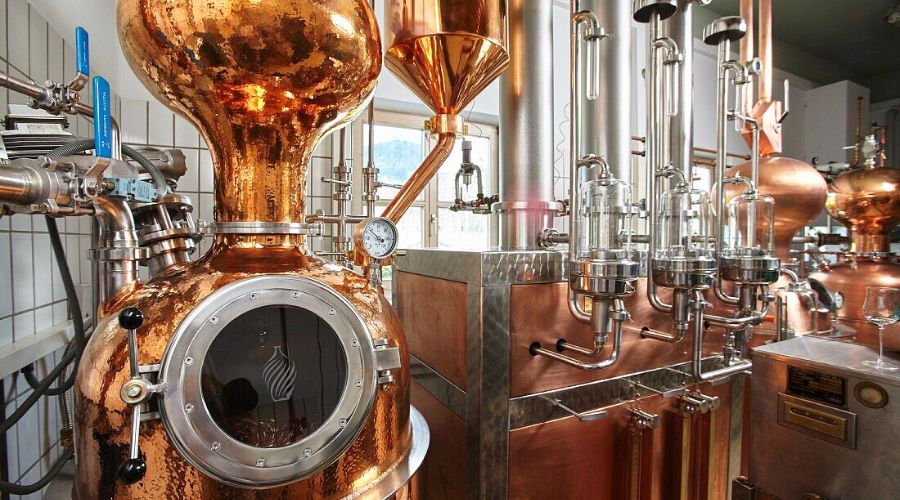Branching out into spirits: A fruit grower’s guide to craft distilling
8th April 2025
Matt Servini, co-founder of The Craft Distilling Business, offers advice for those considering setting up a distillery.

The allure of transforming surplus fruit into high-value spirits has captured the imagination of fruit growers worldwide. While traditional fruit-producing regions like Austria, Switzerland, and parts of Germany and France have long embraced the art of distilling, the UK’s burgeoning craft distilling scene offers a unique opportunity for domestic growers.
The recent relaxation of alcohol production regulations in the UK has made it easier than ever for fruit farmers to venture into spirits. By capitalising on this trend, growers can create unique, high-quality products that appeal to discerning consumers.
Regulatory modernisation
A key driver of this growth is the UK government’s introduction of the Alcoholic Products Producer Approval (APPA) scheme. This streamlined regulatory framework simplifies the licensing process, making it more accessible for small-scale producers. By reducing administrative burdens, APPA encourages innovation and fosters the growth of the craft distilling industry.
Why distil?
Given the potential for wine and cider production, why should fruit growers consider distilling? The answer lies in several key advantages:
- Utilisation of lower-grade fruit – Distillation can transform imperfect or surplus fruit into valuable spirits, reducing waste and maximising profits.
- Longer shelf life – Spirits have a significantly longer shelf life than wine and cider, allowing for strategic planning and market entry.
- Higher value-added product – Distilled spirits often command higher prices, offering greater profitability
- Lower storage and shipping costs – The concentrated nature of spirits reduces storage and transportation costs
- Global export potential – The global demand for premium spirits presents exciting export opportunities.
Cost of setting up a micro-distillery
The initial investment for a micro-distillery can vary depending on the production scale and the products you wish to make.
The equipment for a micro gin distillery cost as little as £16,000. However, a more significant investment is required when making fruit brandy. Around £60k will provide a fancy still suitable for a visitor centre and a brewhouse for the fermenters.

Seeking expert advice
To navigate the complexities of setting up and running a distillery, seeking expert advice is highly recommended. Consultants can provide guidance on:
- Regulatory compliance – Ensuring adherence to all relevant regulations and obtaining necessary licenses
- Equipment selection – Choosing the right equipment to meet specific production needs and budget constraints
- Recipe development – Creating unique and delicious spirit recipes that highlight the distinctive flavours of your fruit
- Staff training – Training staff on distillation techniques and quality control.
By carefully considering these factors and seeking expert advice, fruit growers can successfully embark on the exciting journey of craft distilling and create a sustainable and profitable business.
Companies like the Craft Distilling Business Ltd offer a one-stop shop for equipment and services to help set up a micro-distillery from scratch.
Look to Europe for inspiration
Europe has a rich history and a diverse range of fruit brandy. Here are some notable examples of European fruit growers who’ve made the leap into distilling:
Agricola San Felice (Italy) – This Tuscan farm produces a range of fruit brandies alongside their wines. They use traditional alembic stills to distil their own plums, cherries, and apricots, resulting in elegant and aromatic spirits
Schladerer (Black Forest Germany) – This family-owned distillery in the Black Forest has been producing fruit brandies for over 170 years. They are known for their Kirschwasser (cherry brandy) made from locally sourced cherries and their unique use of wooden barrels for ageing
Rochelt (Vorarlberg, Austria) – This Austrian distillery is famous for its exquisite fruit brandies, particularly those made from Williams pears. They use a meticulous process, including hand-selecting fruit and slow fermentation, to create some of the world’s most sought-after eaux-de-vie.
These examples showcase the diversity and tradition of fruit-based distilling in Europe. They demonstrate how growers can leverage their expertise in fruit cultivation to create distinctive and high-quality spirits that capture the essence of their terroir.
Conclusion
Branching out into craft distilling can be a rewarding venture for fruit farmers. By carefully considering the abovementioned factors and seeking expert advice, you can turn your passion for fruit into a thriving spirits business.
About our author:
Matt Servini, co-founder of The Craft Distilling Business, is a seasoned industry expert with over 30 years of experience in the food and beverage industry.
With his deep knowledge of distilling and flavour chemistry, Matt has helped over 300 entrepreneurs establish successful craft distilleries. By leveraging his expertise and passion, Matt and his team at The Craft Distilling Business empower individuals to turn their dreams of owning a distillery into reality.
Read more fruit news.
